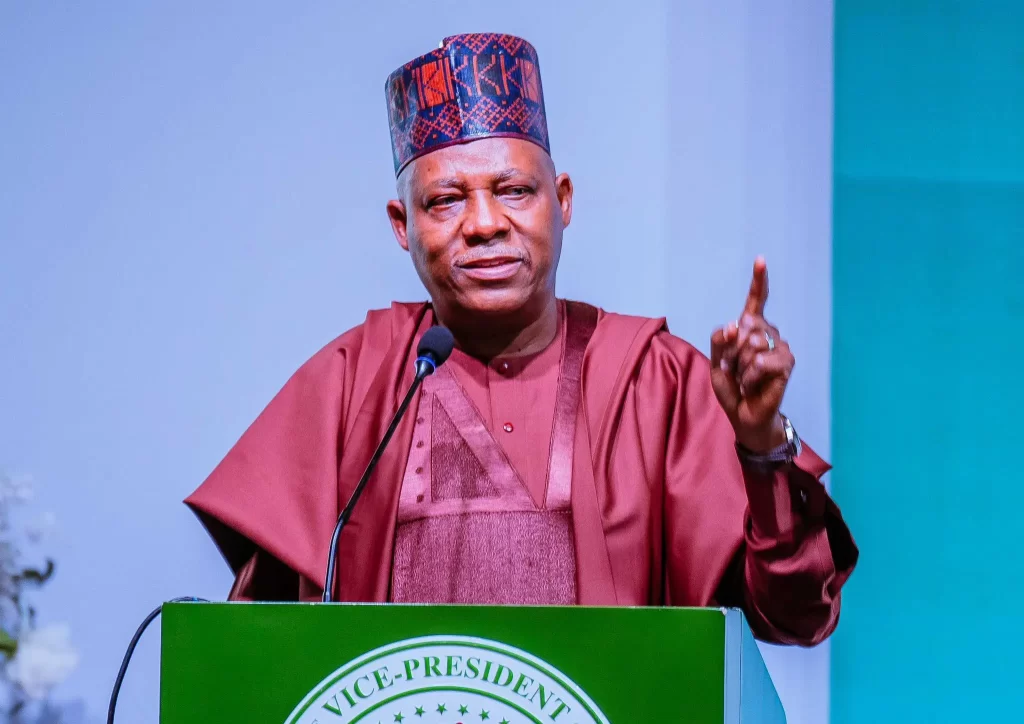
The Federal Government has unveiled a new financial inclusion policy aimed at transforming Nigeria into a $1 trillion economy by 2030.
According to the Presidency, the project is designed to combat poverty and catalyse sustainable economic growth from the ground up.
Vice President Kashim Shettima who unveiled the policy on Wednesday, said the initiative symbolises the commitment of the President Bola Tinubu administration to enhancing financial and economic inclusion across Nigeria.
The Federal Government had on April 25, 2024 unveiled the Aso Accord on Economic and Financial Inclusion, a multi-pronged blueprint designed to achieve universal access to financial services.
The accord represents a core pillar of the administration’s Renewed Hope Agenda to transform the nation into a $1 trillion economy by 2030, while combating poverty and insecurity through broad-based prosperity.
Addressing members of the team and other stakeholders at the maiden meeting, the Vice President noted that the idea is to provide access to capital and eradicate poverty through legislative interventions and critical policies.
According to Shettima, at the heart of every strategy championed by Tinubu is the need to prioritise inclusive economic growth and development.
He listed some positive results the efforts have yielded to include the recent upgrade of Nigeria’s credit outlook to positive by Fitch Ratings, noting that it is in recognition of the reform progress under Tinubu.
“While such upgrade by a distinguished institution reflects growing confidence in our economic trajectory, particularly in light of policy changes aimed at easing our debt service burden, we remain mindful of the short-term impacts of these reforms.
“Hence, we are prioritising measures to mitigate immediate effects, from the Student Loan Act, which democratises access to education, to the relentless efforts of the Federal Ministry of Agriculture and Food Security in combating food insecurity.”
Shettima further pointed out that due to the administration’s belief that its approach to inclusive growth must be strategic and sustainable, economic and financial inclusion was elevated to the agenda of the National Economic Council (NEC), where all governors of the 36 states and the FCT minister participate in crucial policy deliberations alongside other stakeholders.
